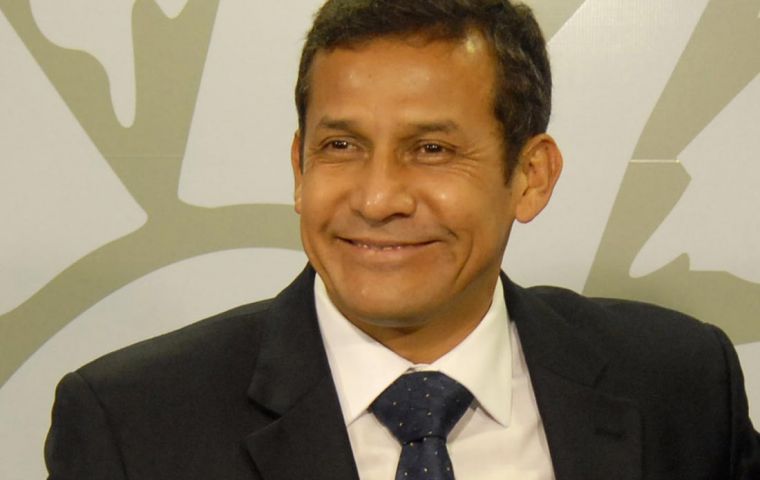MercoPress. South Atlantic News Agency
UN and Amnesty praise Peruvian law on consultation with indigenous peoples
 The law is now on the desk of President Humala for promulgation
The law is now on the desk of President Humala for promulgation The UN Special Rapporteur on the rights of indigenous peoples, James Anaya and Amnesty International praised the approval of a law on consultation with indigenous peoples by the Congress of Peru and called on President Ollanta Humala for its quick promulgation and implementation.
“The law represents an important step forward for indigenous peoples’ rights in the country and elsewhere in the Latin American region”, said Anaya.
“I hope that this is indicative of a strong commitment by the Peruvian State to respond to the demands of indigenous peoples to be consulted about measures that directly affect them, and in particular about extractive industry projects in and around their territories,” Mr. Anaya stressed.
“Now I urge the President of the Republic to promulgate the consultation law”, the Special Rapporteur said “and I call upon the Government to take all necessary measures to ensure the adequate implementation of this law”.
The UN expert congratulated the Congress of Peru on its approval of the consultation law (Ley de derecho a la consulta previa a los pueblos indígenas u originarios reconocido en el Convenio No. 169 de la Organización Internacional del Trabajo).
“I am pleased that the law was passed unanimously by the Congress, with no votes against it and no abstentions”, Mr. Anaya said.
On 26 March 2008, the United Nations Human Rights Council appointed S. James Anaya Special Rapporteur on the Rights of Indigenous Peoples for an initial period of there years. The Council renewed his mandate for an additional three years in 2011.
Mr. Anaya is a Regents Professor and the James J. Lenoir Professor of Human Rights Law and Policy at the University of Arizona (United States).
Leading Peruvian Indigenous Peoples’ organizations were involved in negotiating the law and have fought for its passage since 2009. Although Congress approved an agreed version of the bill last year, former President Alan García vetoed it.
“This law, which respects the main consensus reached with the Indigenous Peoples’ organizations during the previous legislature, opens a welcome new chapter in the relationships between Indigenous Peoples and the Peruvian authorities,” said Susan Lee, Americas Program Director at Amnesty International.
Social conflicts generated when development projects have gone ahead without the prior, informed consent of Indigenous Peoples have resulted in numerous deaths in Peru in recent years.
Ten local people and 23 police officers died in clashes when police broke up a peaceful June 2009 protest by Indigenous people in Bagua in Peru’s northern Amazon region. More than 200 were injured in the incident, but a full investigation has never been carried out into what happened and those responsible have not been brought to justice.
“Steamrolling over the rights of Indigenous Peoples and others most affected by rural development projects is not the way to economic development,” said Susan Lee.
“In Peru and across the Americas, the social conflicts exacerbated by ignoring the rights and rejecting the input of Indigenous Peoples have resulted in many preventable human rights violations. We hope this law will open a path of good faith and intercultural dialogue, and we urge other countries in the region to follow this important example”.




Top Comments
Disclaimer & comment rulesCommenting for this story is now closed.
If you have a Facebook account, become a fan and comment on our Facebook Page!